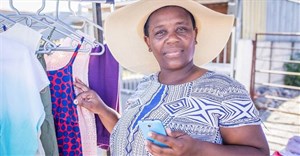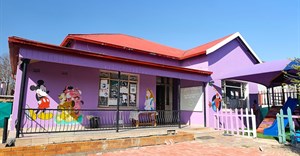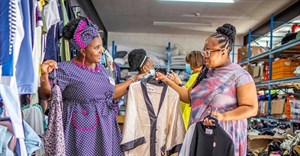Subscribe & Follow
Trending

 Woolworths sees over 20% drop in annual earningsAby Jose Koilparambil
Woolworths sees over 20% drop in annual earningsAby Jose Koilparambil



Clothing Bank develops women entrepreneurs
The brainchild of budding social entrepreneurs, Tracey Gilmore and Tracey Chambers, Chambers identified the opportunity to use the surplus clothing in the retail industry to teach unemployed women how to trade, through developing their business skills and helping them to start their own businesses. This idea became the basis of the company's business model.
Simple model
The surplus clothing, donated to the Clothing Bank by retailers like Woolworths, is sold to its trainees at a nominal rate. Small loans are available to trainees as start-up capital. The new traders in turn resell the merchandise in their communities. The income they make supports their families. They are encouraged to set aside a small portion of their earnings to purchase additional apparel to sell. Many of its beneficiaries have gone from being unemployed to being their own boss.
Each month the Clothing Bank recruits 15 unemployed mothers who are taught to:
- Manage a business and learn life skills;
- Gain practical experience by using the clothes as a tool to acquire trading skills;
- Develop a business plan to start their business.
Chambers is careful not to develop a relationship of dependency on the clothing for a living. The women leave the programme after 24 months and pursue their own business interests with help from The Clothing Bank.
"South Africa has a sizeable informal trading sector that supports many disadvantaged communities. While many people are focusing on developing formal entrepreneurs, we believe investing in the informal sector can also contribute to alleviating poverty," she says.
"It is helping women to tap into the informal market. The training we do covers basic business principles like budgeting, merchandise control, marketing and a range of soft skills that build confidence as well as self esteem. The women leave here with the ability to build a sustainable business and a secure future. We impart trading skills that can be used to build any entrepreneurial venture."
Chambers believes their focus on mentorship and confidence building is the secret to its success. "You can't sell if you don't have confidence, and our aim is to combine practical learning with the kind of life skills that will have a real impact in the lives of our candidates."True to its brand promise, Woolworths has really helped to make a difference."
This initiative is not only about profit. It also nurtures a culture of volunteerism. The women donate two days a week to the "Bank" where they help prepare the clothes for sale. This may mean removing labels or repairing damaged clothing.
The Clothing Bank's impact has stretched further than originally planned. Larry-the-cobbler buys shoes that the Clothing Bank's graduates are unable to fix. He has added a thriving second hand shoe sales arm to his modest workshop in Gugulethu.
Guaranteed support, growth
Woolworths has supported the concept from inception. In addition to providing an interest free loan that is only payable after three years, the retailer is donating R5 million in surplus clothing every year for at least three years.
"Our enterprise development programme is geared at growing skills in communities where they are most needed. This is the best investment we can make to nurture new enterprises and provide real opportunities for people," says Brett Kaplan divisional director of clothing and general merchandise at Woolworths.
"Our next challenge is that faced and managed by all successful entrepreneurs - growth. We need more factory and storage space. At the moment we have about 280 square metres, but we need about 1000 to accommodate all the merchandise, processing space and training facilities. But growth is a nice problem to have and we will manage it as we have with all the challenges we have overcome," concludes Chambers.










